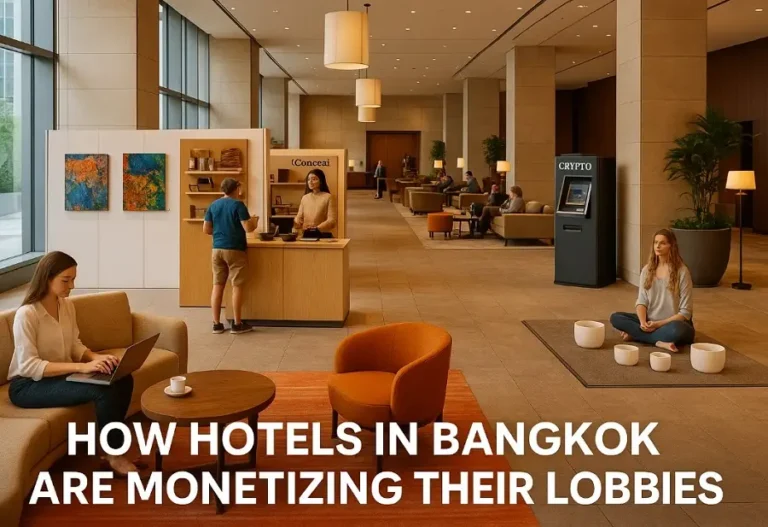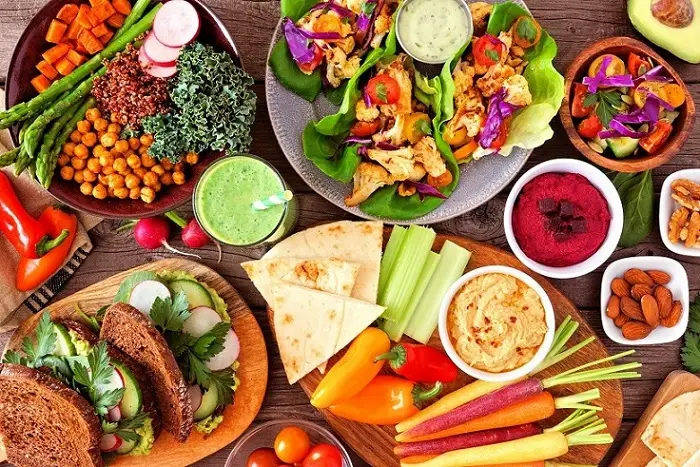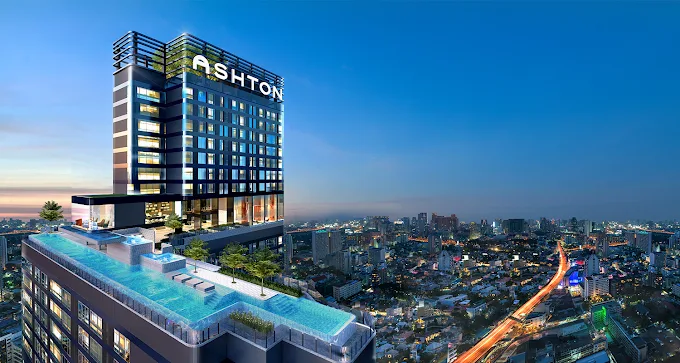
Bangkok Hotel News: Crisis on the Menu Bangkok Hotels Grapple with Plunging Food and Beverage Revenues
Bangkok’s once-thriving hotel food and beverage (F&B) sector is facing an alarming downturn, with many properties reporting dramatic revenue slumps of between 30 to 55 percent compared to pre-pandemic figures. Once considered the go-to venues for elegant dining, weekend buffets, rooftop cocktails, and high-society brunches, hotel restaurants and bars across the Thai capital are now struggling to attract both in-house guests and local clientele

Image Credit: ClarkandCompany/GettyImages/Istock
According to insiders from several upscale hotel brands including Marriott, Accor, Dusit, and Centara, the F&B outlets that were traditionally significant revenue drivers are now becoming liabilities. This Bangkok Hotel News report found that even during weekends and public holidays, hotel restaurants are only seeing half-full dining rooms and low table turnover, while rooftop bars remain eerily quiet even during sunset hours.
Even Banquet and Meeting events are declining and for many other events, customers are looking for low-rate menus or economical catering packages.
Dining In Is No Longer In
One of the key shifts hurting hotel F&B revenues is the changing behavior of hotel guests. Unless breakfast is bundled into the room package, very few guests opt to dine in-house. “Guests are more adventurous and cost-conscious now,” says Wichai K., a food and beverage director at a major Sukhumvit hotel. “They would rather explore the bustling street food scene or visit popular mid-range restaurants promoted heavily on TikTok.”
Even corporate travelers and expats, who previously formed a loyal base for after-work drinks and executive set lunches, are now turning away from hotel outlets. The reasons are multifaceted: a sluggish Thai economy, stagnant wages, rising household debt, and an ever-growing number of independent eateries offering better value and trendier dining experiences.
Creative Drought and Stiff Competition
Many Bangkok hotels are being accused of failing to evolve with the times. Dated concepts, uninspired menus, and a lack of dynamic marketing have rendered hotel dining outlets obsolete in a city bursting with culinary creativity. Unlike standalone restaurants that constantly innovate, many hotels continue to rely on traditional buffet spreads, which no longer excite the younger crowd.
Moreover, discount promotions with credit card companies—once a major draw—are losing their allure. “Everyone’s doing the same 10 to 20 percent discounts. It’s not compelling anymore,” notes Priya D., a local food blogger. “Why would I pay hotel prices when trendy restaurants outside offer better ambiance and no service charge?”
The Tax Factor
Adding to the woes are the unavoidable service charges and VAT, which can add nearly 17 percent to any bill. At a time when diners are seeking affordability, these extra costs are turning people away. “You order a cocktail for 320 baht, but your bill comes out to 375 baht. It’s a psychological barrier,” said James Rowe, an expat residing in Thonglor.
Buffets, once the crown jewel of many hotel F&B departments, are no longer a guaranteed crowd-puller. All-you-can-eat seafood, teppanyaki, or grill nights at luxury hotels are being outshone by new independent buffet establishments in malls and lifestyle centers offering more variety and at nearly half the price—with no hidden taxes.
What Needs to Change?
To recover, experts say hotels must reinvent their approach to dining. This includes tapping into experiential dining, pop-up collaborations with celebrity chefs, embracing social media influencers, and creating themed events that resonate with Gen Z and millennial audiences. “Hotels have to think beyond the table,” advises Pipatpong Buanak, an F&B marketing consultant based in Bangkok. “It’s about storytelling, aesthetics, experience, and value.”
Many suggest hotels should also consider revising their pricing structures to absorb part of the tax burden or offer net pricing to appear more competitive. Flexibility, creativity, and understanding the pulse of the modern diner are now essential for survival in Bangkok’s saturated food scene.
The road ahead may be challenging, but those who innovate and connect with evolving consumer expectations stand a better chance at restoring lost revenue streams. Failure to do so could see more hotel restaurants shuttered, repurposed, or outsourced to third-party operators.
Hotel food and beverage outlets in Bangkok are no longer insulated by brand prestige or tourist volume. In the face of rising competition, economic constraints, and shifting diner priorities, only bold innovation and guest-centric thinking will offer a path forward.
For the latest dinning venues at various Bangkok Hotels, keep on logging to Bangkok Hotel News.




